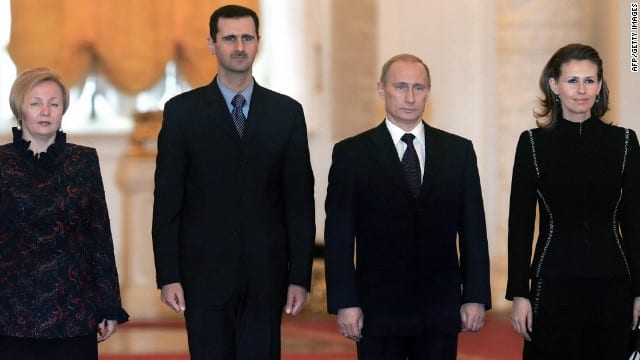The Empire Strikes Back
=By=
Chris Hedges

Corporate colonization proceeding as planned.
A decade ago left-wing governments, defying Washington and global corporations, took power in Brazil, Argentina, Paraguay, Venezuela, Uruguay, Bolivia and Ecuador. It seemed as if the tide in Latin America was turning. The interference by Washington and exploitation by international corporations might finally be defeated. Latin American governments, headed by charismatic leaders such as Hugo Chavez in Venezuela, Luiz Inácio Lula da Silva in Brazil, Evo Morales in Bolivia and Rafael Correa in Ecuador, won huge electoral victories. They instituted socialist reforms that benefited the poor and the working class. They refused to be puppets of the United States. They took control of their nations’ own resources and destinies. They mounted the first successful revolt against neoliberalism and corporate domination. It was a revolt many in the United States hoped to emulate here.
But the movements and governments in Latin America have fallen prey to the dark forces of U.S. imperialism and the wrath of corporate power. The tricks long practiced by Washington and its corporate allies have returned—the black propaganda; the manipulation of the media; the bribery and corruption of politicians, generals, police, labor leaders and journalists; the legislative coups d’état; the economic strangulation; the discrediting of democratically elected leaders; the criminalization of the left; and the use of death squads to silence and disappear those fighting on behalf of the poor. It is an old, dirty game.
President Correa, who earned enmity from Washington for granting political asylum to Julian Assange four years ago and for closing the United States’ Manta military air base in 2009, warned recently that a new version of Operation Condor is underway in Latin America. Operation Condor, which operated in the 1970s and ’80s, saw thousands of labor union organizers, community leaders, students, activists, politicians, diplomats, religious leaders, journalists and artists tortured, assassinated and disappeared. The intelligence chiefs from right-wing regimes in Argentina, Bolivia, Chile, Paraguay, Uruguay and, later, Brazil had overseen the campaigns of terror. They received funds from the United States and logistical support and training from the Central Intelligence Agency. Press freedom, union organizing, all forms of artistic dissent and political opposition were abolished. In a coordinated effort these regimes brutally dismembered radical and leftist movements across Latin America. In Argentina alone 30,000 people disappeared.

Photo by daniel.julia 
Latin America looks set to be plunged once again into a period of dictatorial control and naked corporate exploitation. The governments of Ecuador, Bolivia and Venezuela, which is on the brink of collapse, have had to fight off right-wing coup attempts and are enduring economic sabotage. The Brazilian Senate impeached the democratically elected President Dilma Rousseff. Argentina’s new right-wing president, Mauricio Macri, bankrolled by U.S. hedge funds, promptly repaid his benefactors by handing $4.65 billion to four hedge funds, including Elliott Management, run by billionaire Paul Singer. The payout to hedge funds that had bought Argentine debt for pennies on the dollar meant that Singer’s firm made $2.4 billion, an amount that was 10 to 15 times the original investment. The previous Argentine government, under Cristina Fernández de Kirchner, had refused to pay the debt acquired by the hedge funds and acidly referred to them as “vulture funds.”
I interviewed Guillaume Long, Ecuador’s minister of foreign affairs and human mobility, for my show “On Contact” last week. Long, who earned a doctorate from the Institute for the Study of the Americas at the University of London, called at the United Nations for the creation of a global tax regulatory agency. He said such an agency should force tax-dodging corporations, which the International Monetary Fund estimates costs developing countries more than $200 billion a year in lost revenue, to pay the countries for the natural resources they extract and for national losses stemming from often secret corporate deals. He has also demanded an abolition of overseas tax havens.
Long said the neoliberal economic policies of the 1980s and ’90s were profoundly destructive in Latin America. Already weak economic controls were abandoned in the name of free trade and deregulation. International corporations and banks were given a license to exploit. “This deregulation in an already deregulated environment” resulted in anarchy, Long said. “The powerful people had even less checks and balances on their powers,” he said.
“Neoliberalism is bad in most contexts,” Long said when we spoke in New York. “It’s been bad in Europe. It’s been bad in other parts of the world. It has dismantled the welfare state. In the context where we already have a weak state, where institutions are not consolidated, where there are strong feudal remnants, such as in Latin America, where you don’t really have a strong social contract with institutions, with modernity, neoliberalism just shatters any kind of social pact. It meant more poverty, more inequality, huge waves of instability.”
Countries saw basic services, many already inadequate, curtailed or eliminated in the name of austerity. The elites amassed fortunes while almost everyone else fell into economic misery. The political and economic landscape became unstable. Ecuador had seven presidents between 1996 and 2006, the year in which Correa was elected. It suffered a massive banking crisis in 1999. It switched the country’s currency to the U.S. dollar in desperation. The chaos in Ecuador was mirrored in countries such as Bolivia and Argentina. Argentina fell into a depression in 1998 that saw the economy shrink by 28 percent. Over 50 percent of Argentines were thrust into poverty.
“Latin America,” Long said, “hit rock bottom.”
It was out of this neoliberal morass that the left regrouped and took power.
“People came to terms with that moment of their history,” Long said. “They decided to rebuild their societies and fight foreign interventionism and I’d even say imperialism. To this day in Latin America, the main issue is inequality. Latin America is not necessarily the poorest continent in the world. But it’s certainly the most unequal continent in the world.”
“Ecuador is an oil producer,” Long said. “We produce about 530,000 barrels of oil a day. We were getting 20 percent royalties on multinationals extracting oil. Now it’s the other way around. We pay multinationals a fee for extractions. We had to renegotiate all of our oil contracts in 2008 and 2009. Some multinationals refused to abide by the new rules of the game and left the country. So our state oil company moved in and occupied the wells. But most multinationals said OK, we’ll do it, it’s still profitable. So now it’s the other way around. We pay private companies to extract the oil, but the oil is ours.”
[dropcap]L[/dropcap]ong admitted that there have been serious setbacks, but he insisted that the left is not broken.
“It depends on how you measure success,” he said. “If you’re going to measure it in terms of longevity, and how long these governments were in power—in our case we’re still in power, of course, and we’re going to win in February next year—then you’re looking at, more or less in Venezuela 17 years [that leftist governments have been in power], in Ecuador now 10, and in Argentina and Brazil it’s 13.”
“One of the critiques aimed at the left is they’re well-meaning, great people with good ideas but don’t let them govern because the country will go bust,” he said. “But in Ecuador we had really healthy growth rates, 5 to 10 percent a year. We had lots of good economics. We diversified our economy. We moved away from importing 80 percent of energy to [being] net exporters of electricity. We’ve had big reforms in education, in higher education. Lots of things that are economically successful. Whereas neoliberal, orthodox economics was not successful in the previous decade.”
Long conceded that his government had made powerful enemies, not only by granting political asylum to Assange in its embassy in London but by taking Chevron Texaco to court to try to make it pay for the ecological damage its massive oil spills caused in the Amazon, where the company drilled from the early 1960s until it pulled out in 1992. It left behind some 1,000 toxic waste pits. The oil spills collectively were 85 times the size of the British Petroleum spill in the Gulf of Mexico and 18 times the size of the spill from the Exxon Valdez. An Ecuadorean court ordered Chevron Texaco to pay $18.2 billion in damages, an amount later reduced to $9.5 billion. The oil giant, however, has refused to pay. Ecuador has turned to international courts in an attempt to extract the money from the company.
Long said that the different between the massive oil spills elsewhere and the Ecuadorean spills was that the latter were not accidental. “[They were done] on purpose in order to cut costs. They were in the middle of the Amazon. Normally what you’d do is extract the oil and you’d have these membranes so that it doesn’t filter through into the ground. They didn’t put in these membranes. The oil filtered into the water systems. It polluted all of the Amazon River system. It created a huge sanitary and public health issue. There were lots of cancers detected.”
Long said his government was acutely aware that Chevron Texaco has “a lot of lobbying power in the United States, in Wall Street, in Washington.”
“There are a lot of things we don’t see,” he said of the campaign to destabilize his government and other left-wing governments. “Benefits we could reap, investments we don’t get because we’ve been sovereign. In the case of [Ecuador’s closing of the U.S.] Manta air base, we’d like to think the American government understood and it was fine. But it was a bold move. We said ‘no more.’ We declared it in our constitution. We had a new constitution in 2008. It was a very vibrant moment of our history. We created new rules of the game. It’s one of the most progressive constitutions in the world. It actually declares the rights of nature. It’s the only constitution that declares the rights of nature, not just the rights of man. We made Ecuadorean territory free of foreign military bases. There was no other way. But there are consequences to your actions.”
One of those consequences was an abortive coup in September 2010 by members of the Ecuadorean National Police. It was put down by force. Long charged that many of the Western NGO’s in Ecuador and throughout the region are conduits for money to right-wing parties. Military and police officials, along with some politicians, have long been on the CIA’s payroll in Latin America. President Correa in 2008 dismissed his defense minister, army chief of intelligence, commanders of the army and air force, and the military joint chiefs, saying that Ecuador’s intelligence systems were “totally infiltrated and subjugated to the CIA.”
“There is an international conspiracy right now, certainly against progressive governments,” he said. “There’s been a few electoral setbacks in Argentina, and Venezuela is in a difficult situation. The media frames it in a certain way, but, yes, sure, Venezuela is facing serious trouble. There’s an attempt to make the most of the fall of prices of certain commodities and overthrow [governments]. We just saw a parliamentary coup in Brazil. [President Rousseff had been] elected with 54 million votes. The Labor Party in Brazil [had] been in power for 13 years. The only way they [the rightists] managed to get rid of it was through a coup. They couldn’t do it through universal suffrage.”
Long said that even with the political reverses suffered by the left it will be difficult for the rightists to reinstate strict neoliberal policies.
“You have a strong, disputed political ground between a traditional right and a radical left,” he said. “A radical left, which has proved it can reduce poverty, it can reduce inequality, it can run the economy, well, it’s got young cadres that have been [government] ministers and so on. I reckon that sooner or later it will be back in power.”
Corporate leviathans and the imperialist agencies that work on their behalf are once again reshaping Latin America into havens for corporate exploitation. It is the eternal story of the struggle by the weak against the strong, the poor against the rich, the powerless against the powerful, and those who would be free against the forces of imperialism.
“There are no boundaries in this struggle to the death,” Ernesto “Che” Guevara said. “We cannot be indifferent to what happens anywhere in the world, for a victory by any country over imperialism is our victory; just as any country’s defeat is a defeat for all of us.”
Note to Commenters
Due to severe hacking attacks in the recent past that brought our site down for up to 11 days with considerable loss of circulation, we exercise extreme caution in the comments we publish, as the comment box has been one of the main arteries to inject malicious code. Because of that comments may not appear immediately, but rest assured that if you are a legitimate commenter your opinion will be published within 24 hours. If your comment fails to appear, and you wish to reach us directly, send us a mail at: editor@greanvillepost.com
We apologize for this inconvenience.
 Nauseated by the
Nauseated by the
vile corporate media?
Had enough of their lies, escapism,
omissions and relentless manipulation?
Send a donation to
The Greanville Post–or
But be sure to support YOUR media.
If you don’t, who will?








